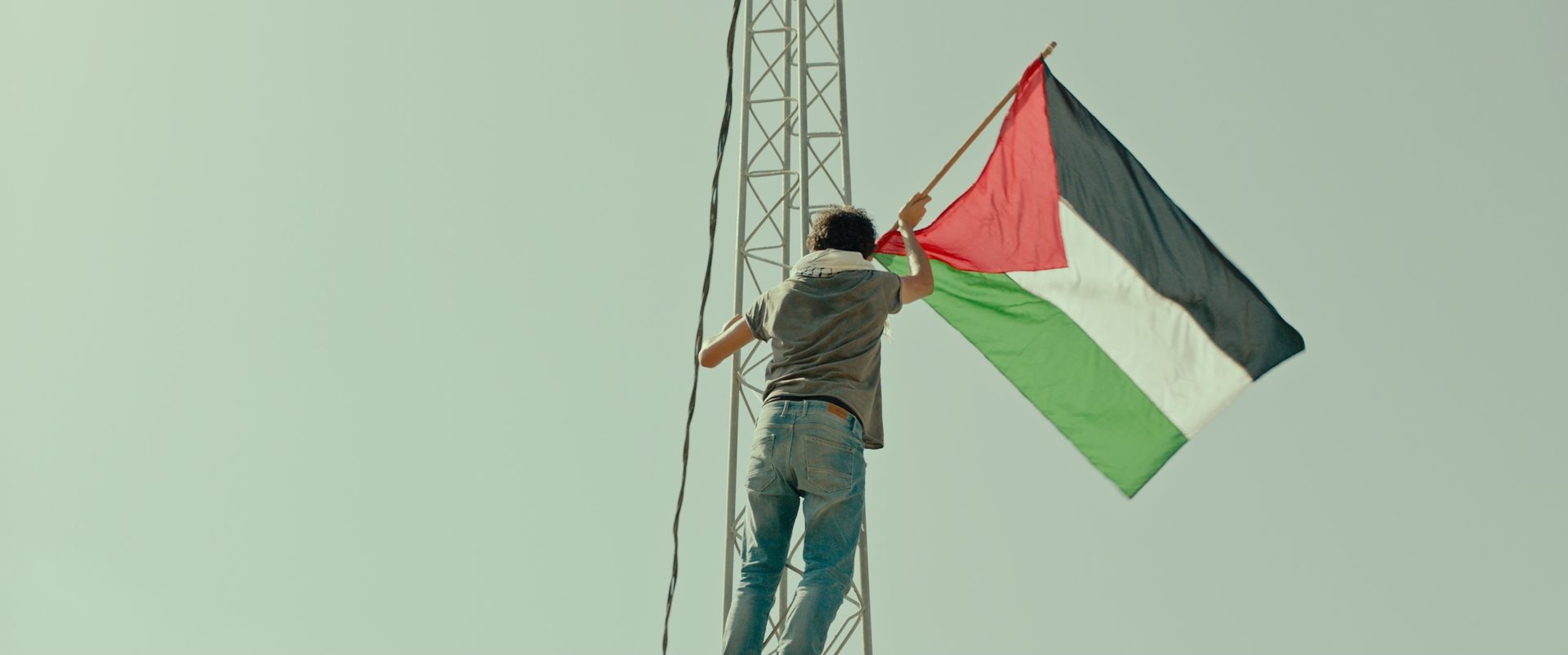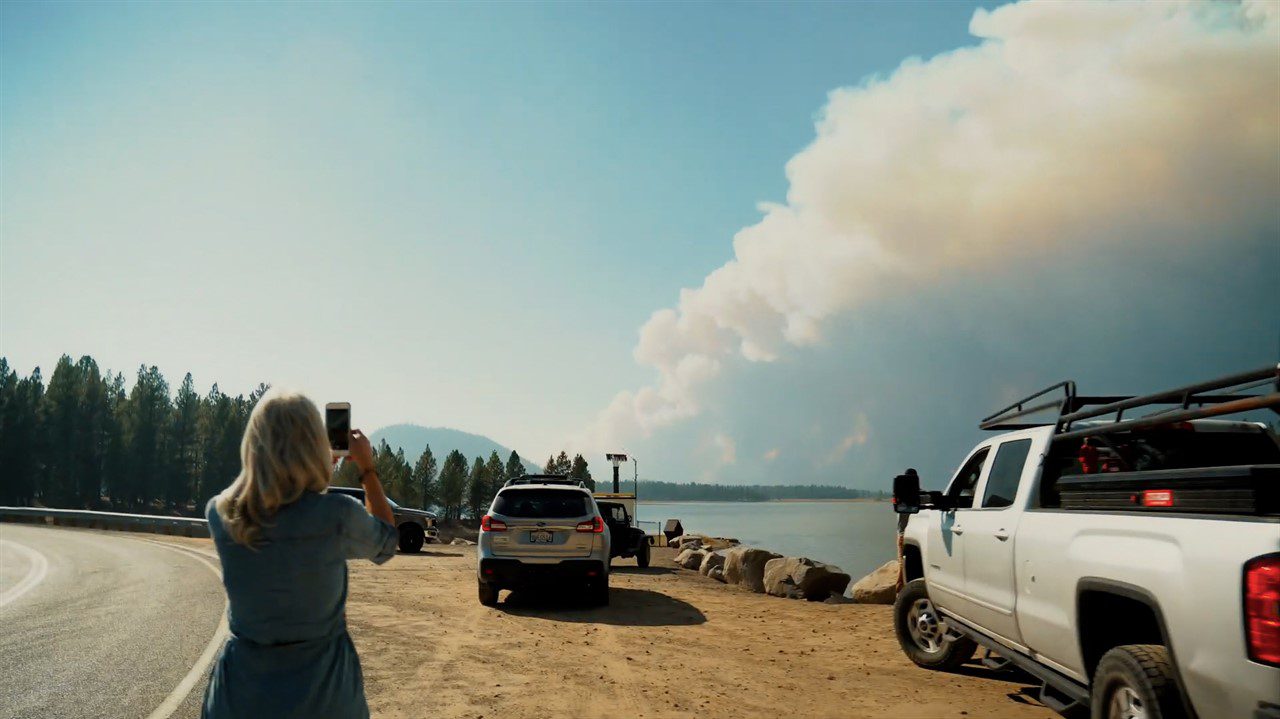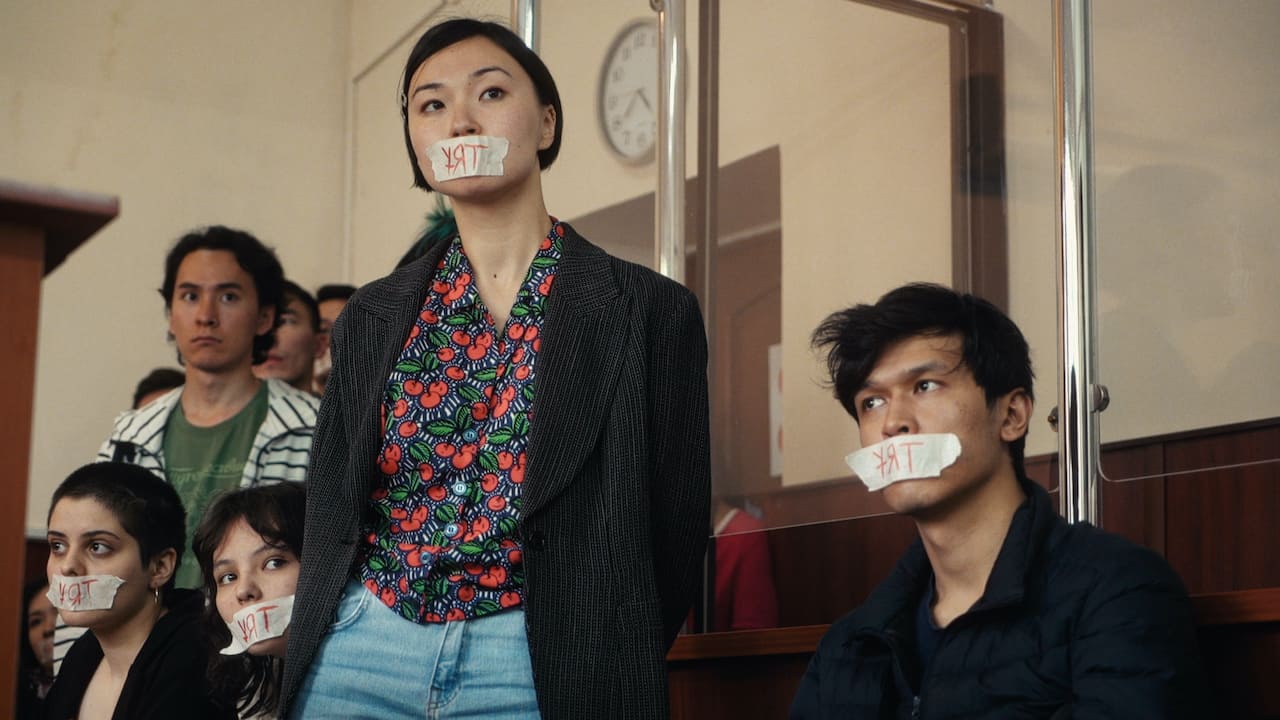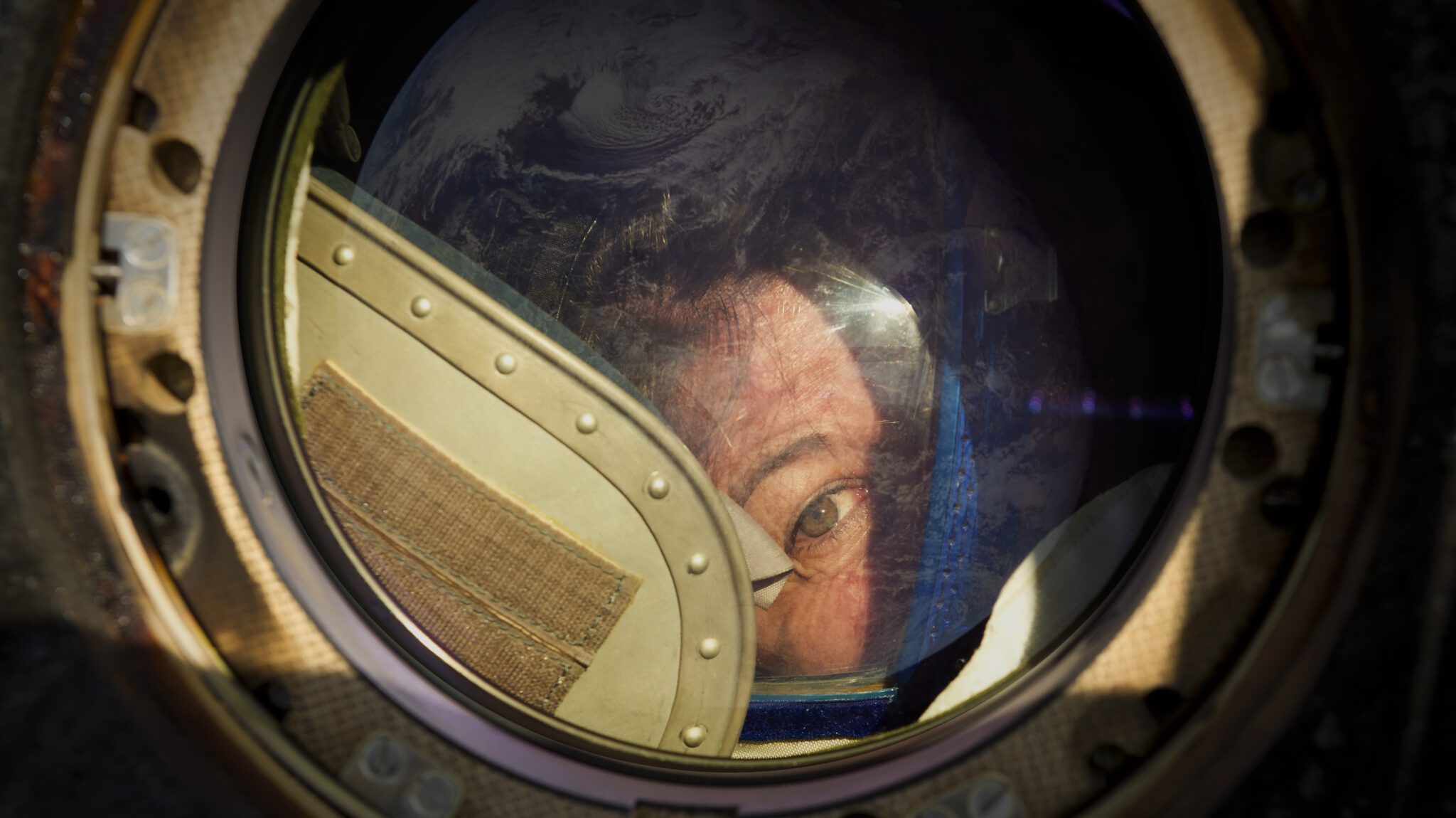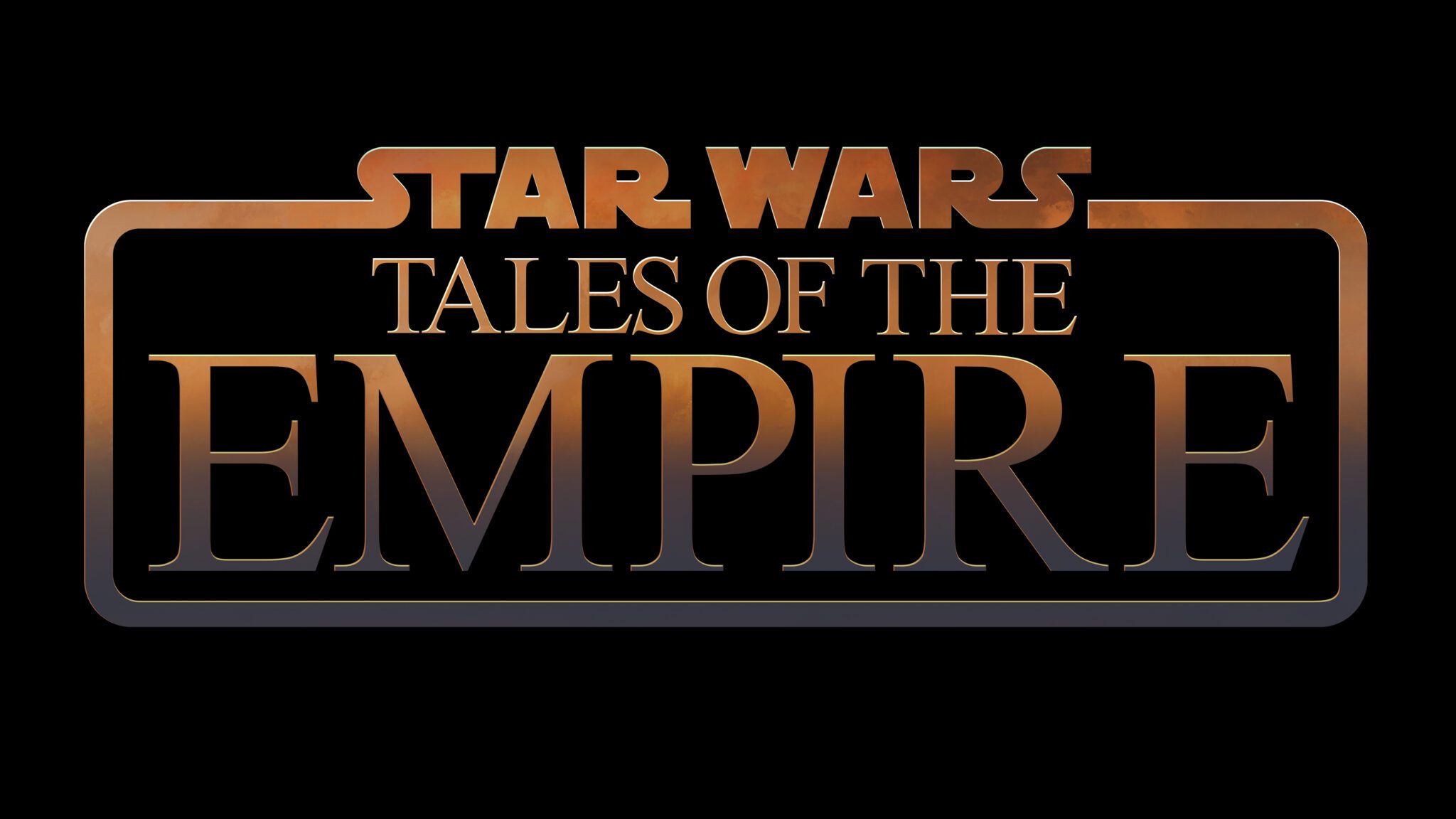“My dad used to say that the beginning of liberation is to raise your flag. The highest level of liberation is to burn it.”
In Alam (The Flag), directed by Firas Khoury, we see Palestinian youth struggling with a world in which they have had no voice. It is not just that they live under Israeli rule; they also live under parental control and school control. Their sense of freedom is blocked in many ways. That makes the film a coming-of-age tale on various levels.
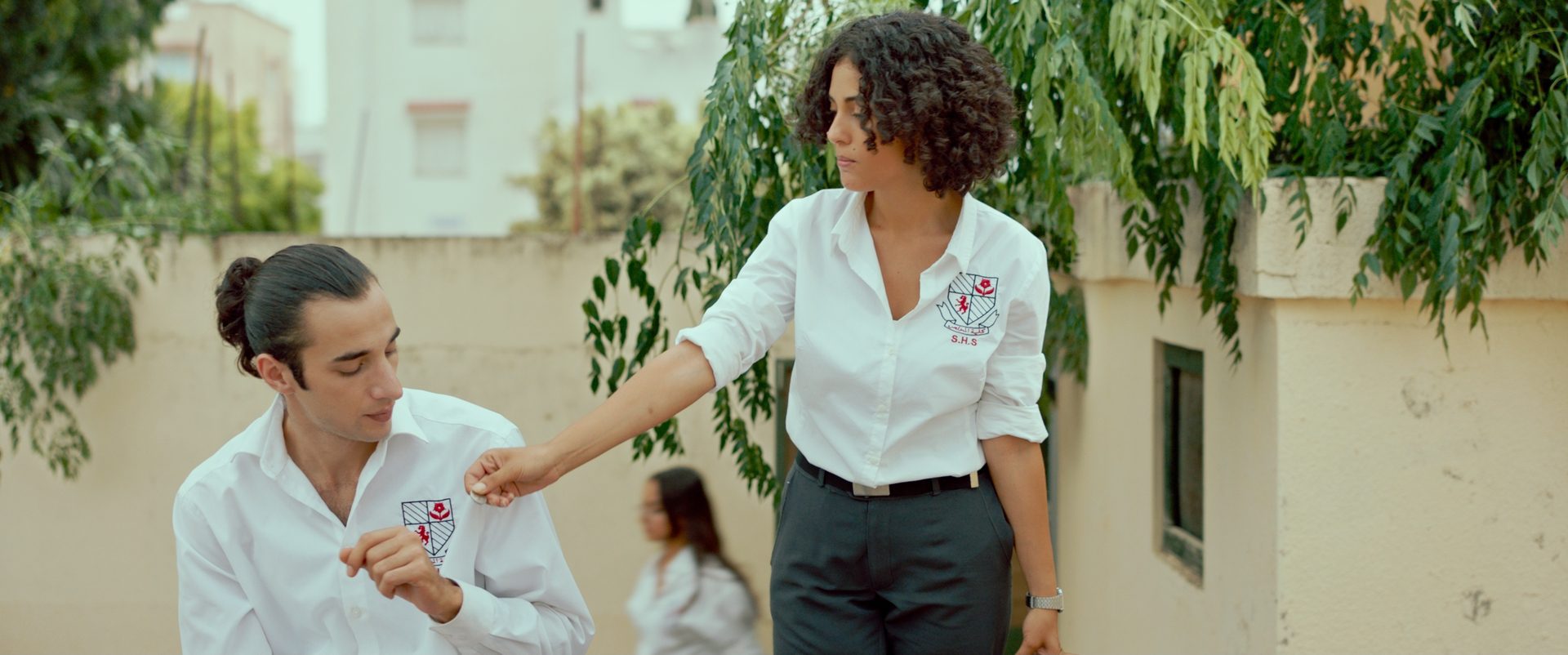
Tamer is a typical middle-class teen. He’s interested in girls, finding drugs, having a sense of independence. He stays not in his family’s house, but in what was his grandfather’s apartment on the same courtyard. At school, he’s down to his last warning before having to appear before the committee that can expel him.
Although not especially political, he and his friends bristle at having the Israeli flag flying over their school. They also don’t like being taught the Israeli-sanctioned history. One of his friends, Safwat, convinces them to plan an operation to replace the Israeli flag with a Palestinian flag. This is to take place around the time of Israeli Independence Day (which for Palestinians is a day of mourning, marking Al-Nakba, the displacement of Palestinians).
This planning is mixed with typical teen angst as Tamer and others try to deal with their coming-of-age issues. For example, Tamer is motivated in part by wanting to impress Maysaa’, a new girl in school who is rumored to have a martyred brother. There is little open rebellion in this town, but there are pockets of protest, which draw Tamer and Maysaa’ into some of the activities. Even as the plan goes live, their naivete and lack of maturity quickly cause problems.
What sets this apart from many of the other Palestinian focused stories is that the young people involved are fairly non-political. These are people who are third or fourth generation post-Nakba Palestinians. Their families have some history before Israel came into existence, but they have carved out lives in this setting. An exception may be Tamer’s uncle Naji, who lives in the open in the courtyard. He has some mental issues going back to an arrest and time in prison. For some reason he always wants to keep a fire burning.
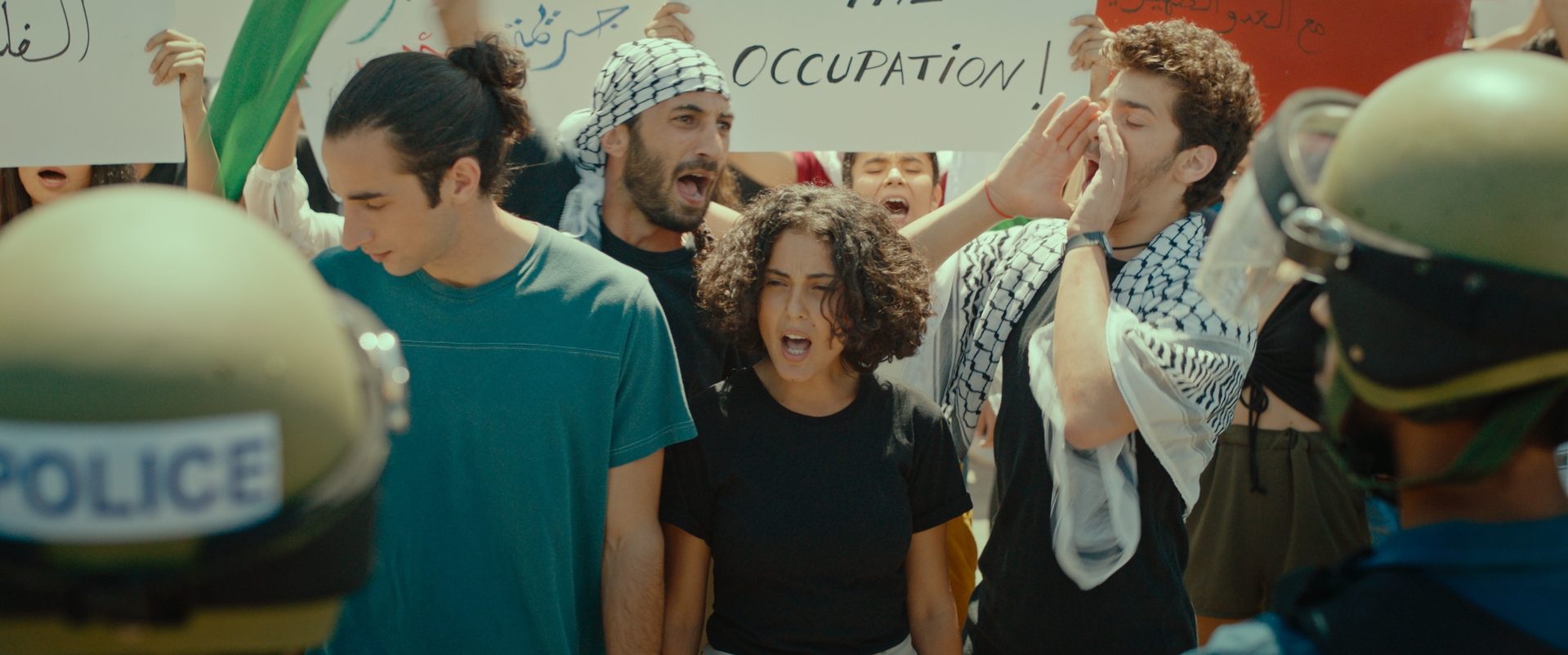
The Israeli flag serves as a symbol of the ways the Palestinians in the story are constantly reminded that they are “other”. Not only the flag at school, but scenes in the local hospital which are filled with decorative Israeli flags. Four Palestinians sitting beneath several such flags is a shot that sums up how they are dismissed and diminished by the world around them.
The lives they and their families have lived may have found a comfortable place, but for these youths it is becoming clear that it will limit them to positions defined by others—be it parents, or school, or Israeli Defense Forces. The story really isn’t about raising a flag at the school, but raising the flag in their own lives.
Alam is available on VOD.
Photos courtesy of Film Movement.

